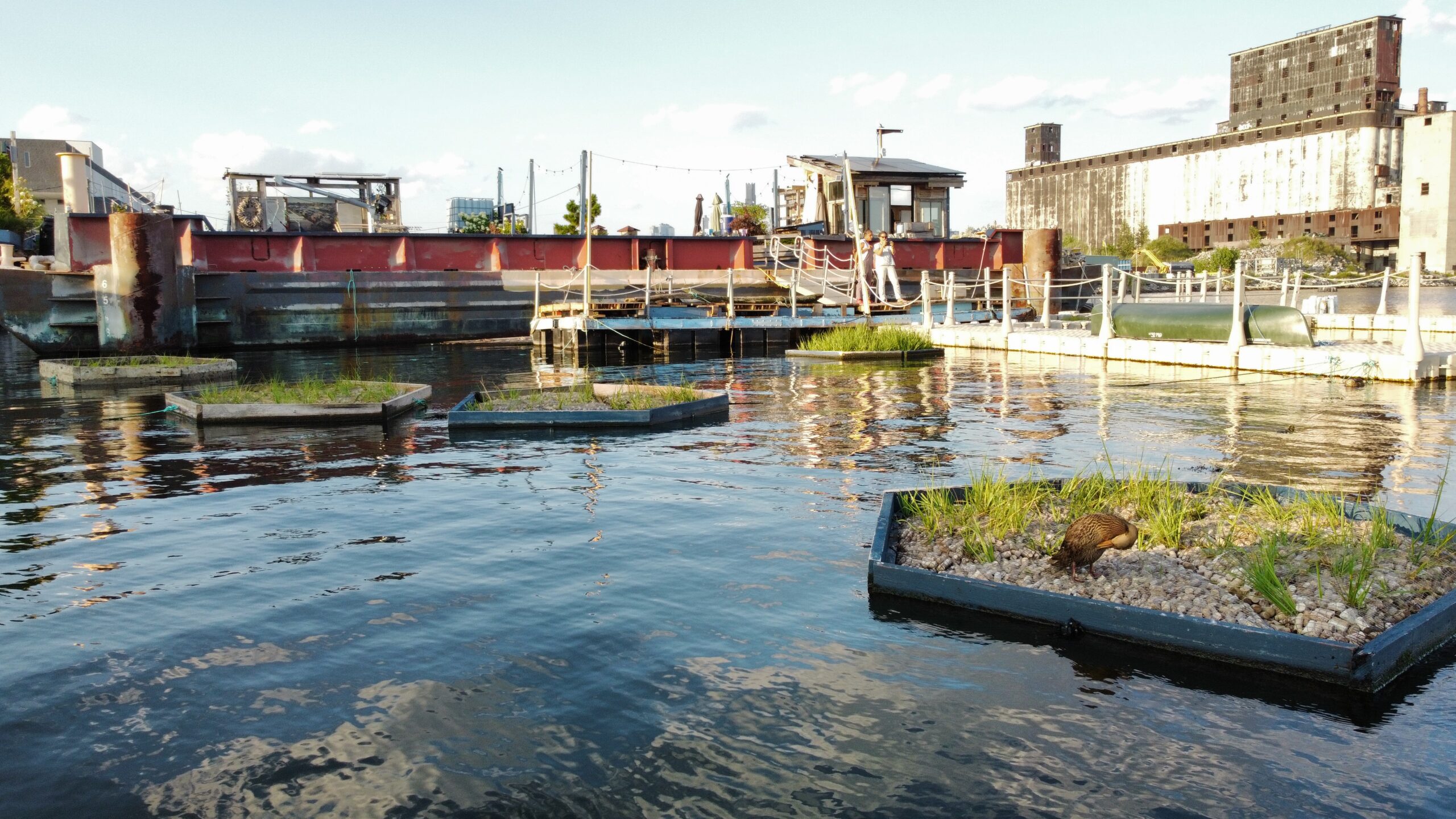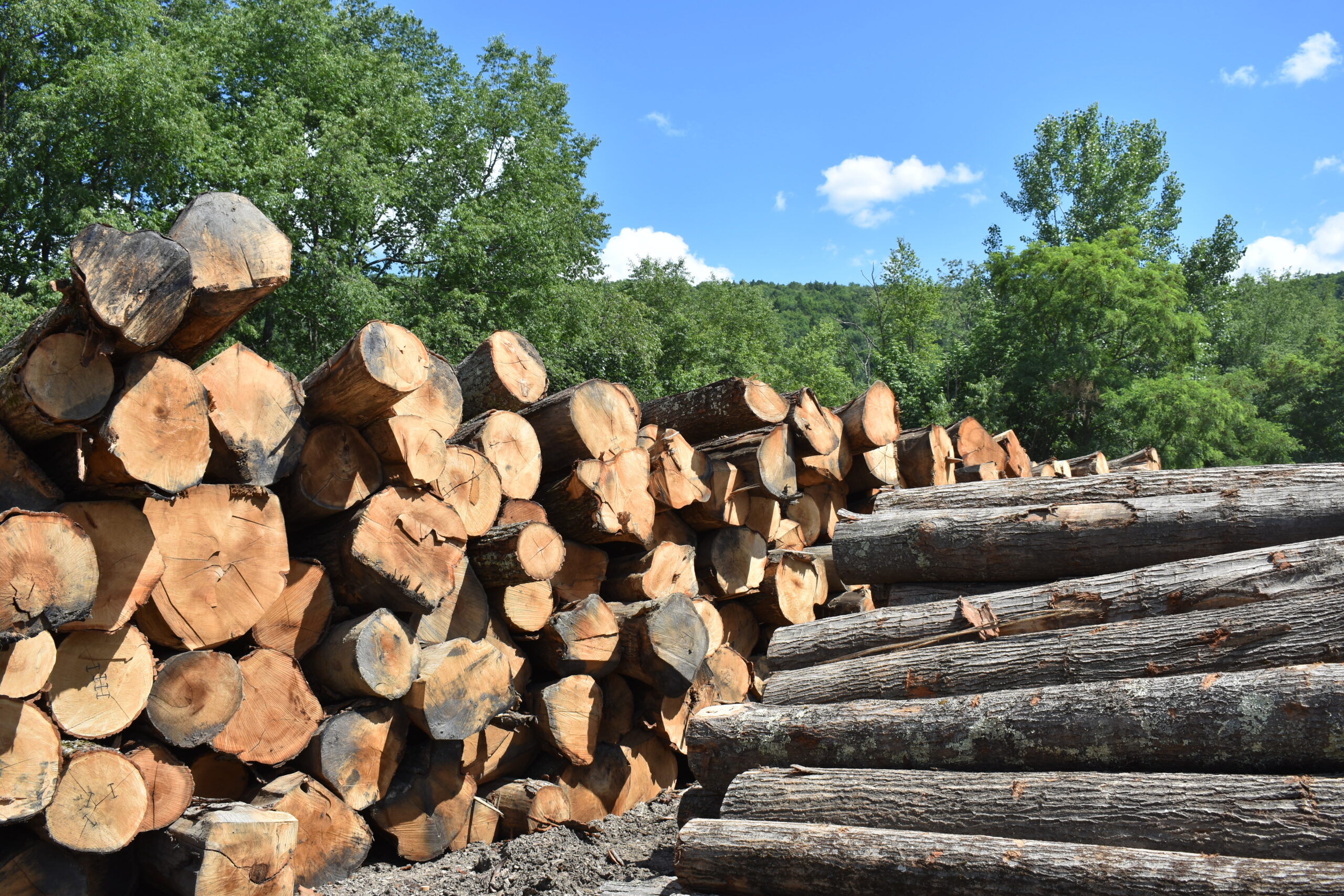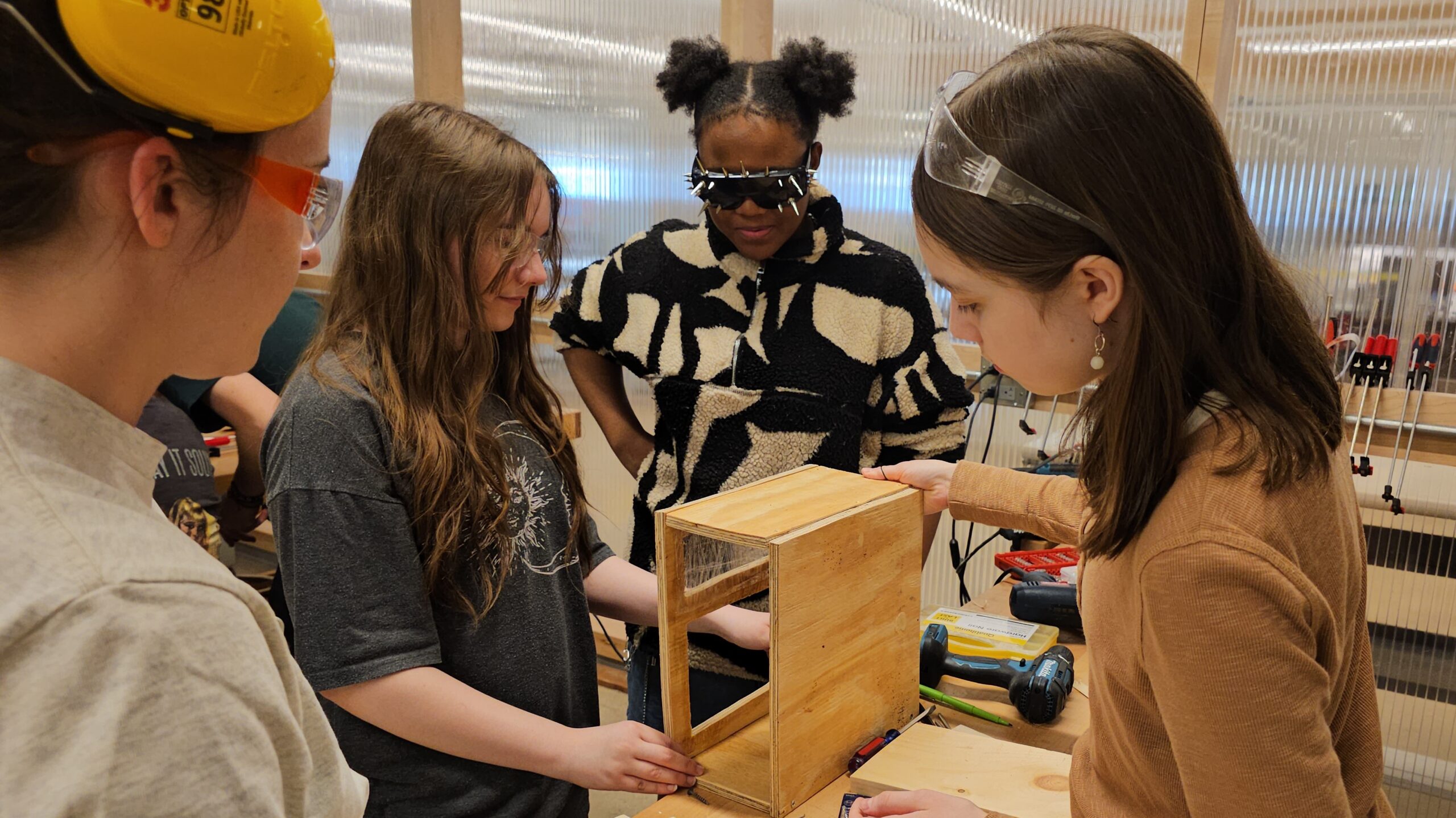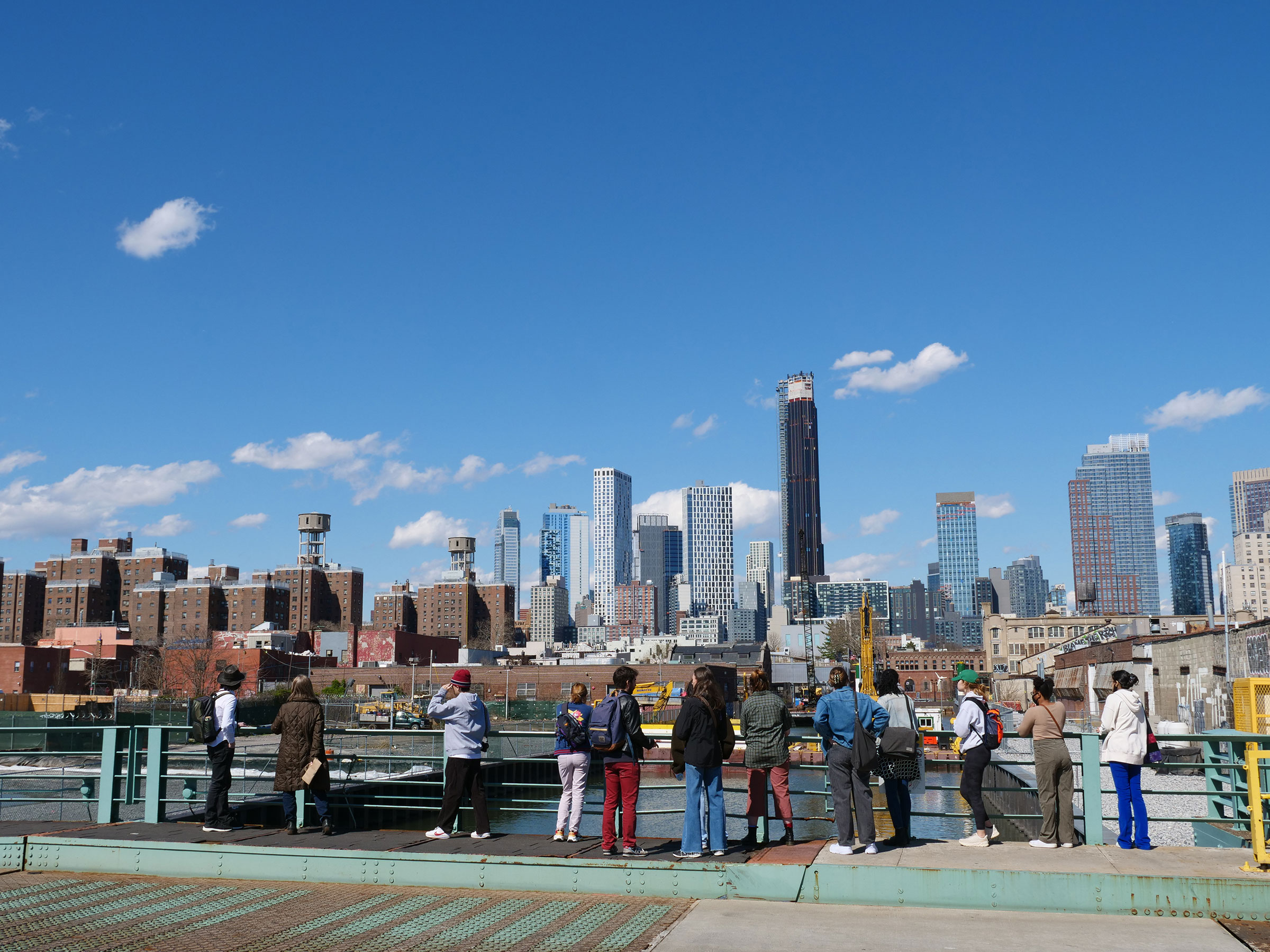Pratt Institute strives to empower students to build an equitable, sustainable world and a key part of this work involves researching and developing ways to reduce greenhouse gas emissions, regenerate natural ecosystems, and support communities impacted by environmental harms. Within the context of New York City, this means promoting local climate resilience, engaging and educating diverse communities on climate issues, and advancing environmental policy goals. As Pratt President Frances Bronet recently wrote in a call-to-action for the Center for an Urban Future: “Every Brooklynite must be climate literate so that they can address the tremendous environmental challenges that confront us.”
Pratt’s commitment to sustainability is reflected through its role as a core partner of The New York Climate Exchange, a non-profit world-class climate center on Governors Island that will become a hub for international research and collaboration on climate solutions, and community engagement on issues of climate justice and equity. This effort follows a long history of environmental action and advocacy and joins numerous ongoing efforts. In fact, Pratt is the only independent school of art and design to achieve a Gold rating from the Association for the Advancement of Sustainability in Higher Education. Here are a few other ways Pratt is supporting climate literacy and justice throughout New York City.
BlueBlock Gardens

The majority of New York City’s 500 miles of coastline no longer have the natural ecological buffers that once characterized the archipelago, as marshland gradually gave way to concrete, stone, and steel over the past few centuries. BlueBlock Gardens installation is a partnership between Pratt faculty and the RETI Center in Red Hook to restore this ecological benefit through floating gardens that can support aquatic ecosystems, promote coastal resilience, and provide an opportunity for students and community members to learn about climate change. Taking inspiration from lily pads, the gardens feature modular blocks floating on platforms of recycled cork and can form a floating food forest. The blocks fit together like puzzle pieces, which creates opportunities for local schools to take part in the construction process and learn how to improve marine ecosystems.
Decarbonizing the Built Environment

Achieving New York’s climate policy goals will require transforming the construction industry through sustainable materials and methods of energy and water efficiency. Through a partnership with Pratt, the District Council of Carpenters, the SUNY School of Forestry in Syracuse, and the Mayor’s Office, the Mass Timber For Affordable Housing (MTAH) project is reviewing 800 city-owned sites to see if they can accommodate affordable housing built with mass timber, a sustainable alternative to concrete and steel. Mass timber both stores carbon emissions and can reduce construction-associated emissions by up to 26.5%. Pratt is also working with Mothers On The Move in the Bronx and the Economic Development Corporation to determine the efficacy of using hemp for building insulation, which could lead to the development of a hemp factory in the Bronx. On the Pratt Brooklyn campus, an effort to electrify buildings and improve their energy efficiency is underway as part of a larger decarbonization plan.
Reclaimed Textiles, Found Materials, and Sustainable Production

Moving towards a circular economy to cut carbon emissions by increasing recycling and the collocation of production and industrial activities will require training the next generation of designers, scientists, architects, planners, and advocates in principles of sustainability. Pratt Earth Action Week demonstrates the work being done year-round in Pratt classrooms, clubs, and centers to research, analyze, and develop sustainable solutions for different fields. The Center K-12 draws on the expertise of Pratt students and faculty to educate more than 2,000 local students each year. In one program, cohorts of students will learn about upcycling and product life cycle analysis by working with a range of natural fibers, textiles, and reclaimed materials to build looms, sculptures, and greenhouses.
Pratt is weaving climate literacy and action throughout its teaching, operations, and engagement with local community members and institutions, and will continue to build on these and other efforts, including by working with the Association of Independent Colleges of Art and Design to share best practices and advance climate resilience.
